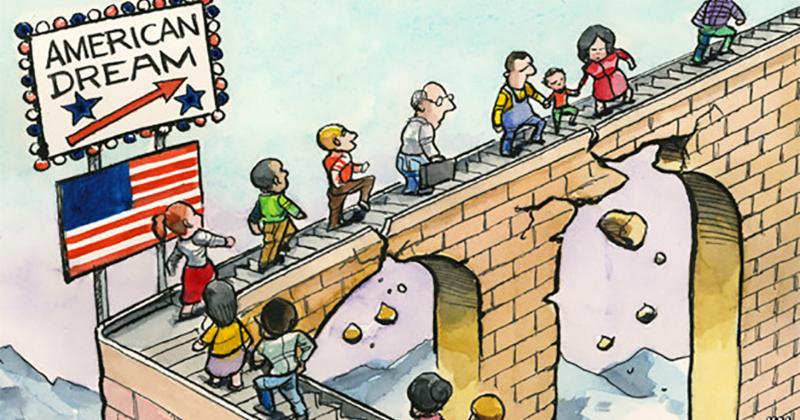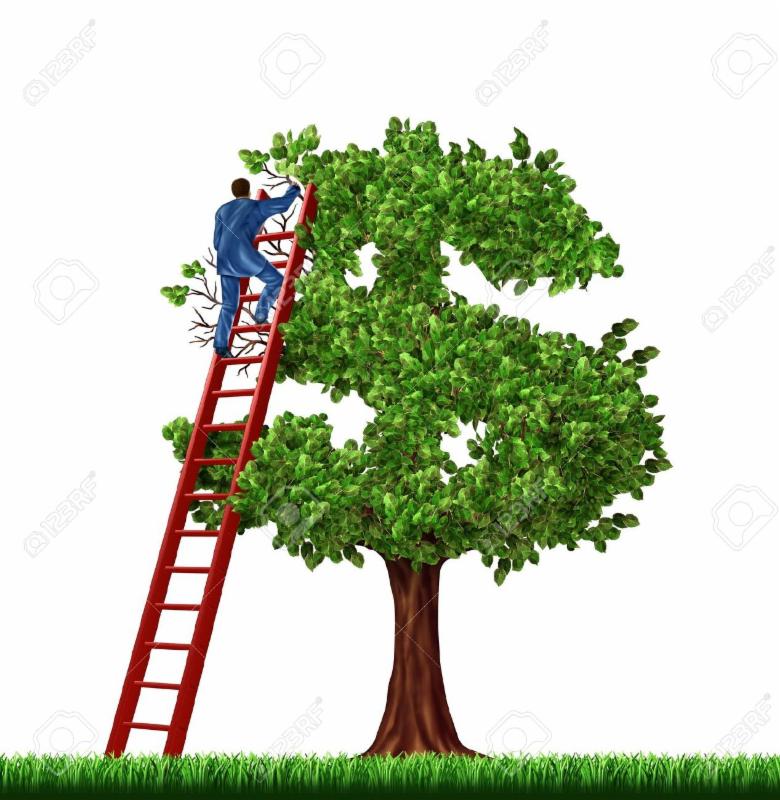|
This article was constructed with the help of either writings, lectures or shiurim of Rabbi’s Eliyahu Ben Chaim, Bentzion Shaffer, Naftali Gonzfried, Yossi Bilius, Pinchas Lieser
|
  Many of us want to succeed in the land of opportunity. This was especially the case for our beloved parents, who came to this country with a dollar and a dream. America the beautiful, where money grows on trees, that is, if one can discover the secret of which trees
I know someone who climbed the ladder of success. The panicle of his achievement was a move to the suburbs, into a huge house and affluent neighborhood. Ahh, G-d showered him with the American dream, “Shechiyanu v’kiyimanu v’higianu l’zeman hazeh! Look at us we made it!!” was his and his family’s proclamation
However, life took a different turn when they moved into the new house. Sometime later, the husband lost his job. Marital problems resurfaced, issues that seemed to be resolved when they moved in to their previous home, ten years earlier. One bad thing after another occurred. Medical problems were discovered in a few of the children. It was as if the house was haunted. The situation was downright frustrating. They contemplated moving back, but descending a rung on the ladder of social status is not an easy thing to do, plus they had already sold their previous home
The previous house had brought lots of mazal. Children were born there. Marital bliss, growing business and prominence in the community were all part of daily life at the old address. A rav suggested throwing a special meal in the new house, with much divrai Torah and plenty of brochot to be recited. “Shower the house with spirituality, that will knock out the evil spirits,” he said. Someone advised painting the inside walls, because the walls were obviously tainted with the bad luck of the previous owner. There were those who felt the former residents must have cursed the property
  In today’s day and age, where we are sophisticated and educated,s where information is on the tip of our fingers within seconds, can people actually believe in haunted houses? Can people seriously think that moving to a new neighborhood could change their’s fortune?
 In this week’s parsha, Moshe continues addressing the Israelites just before he passes away and they cross the Jordan River to enter the land of Israel. Moses commands the Israelites to proclaim certain blessings and curses on Mount Grizzim and Mount Ebal, once they reach the land of Israel. Moshe informs them that they can be the recipients of either blessings or curses — blessings if they obey G-d’s commandments, and curses if they do not. According to one interpretation, the location of these mountains is placed outside of Shechem. What is the significance of that city, to the land of Israel initiation ceremony of blessings and curses? Every word in the Hebrew language is not just a label, but the essence of its subject. The word Shechem means segment or portion. Another interpretation understands it as shoulder. These descriptions apply both to Shechem the person and Shechem the place. In essence, these two definitions amount to the same understanding. Each person in Shechem wanted his own portion in life to be significant and not just part of a larger entity. In other words, they each wanted to shoulder the load alone, like a ball hogging basketball star. Shechem was a place that influenced its dwellers and those who traveled through it, to experience a heightened sense of importance and worthiness In this week’s parsha, Moshe continues addressing the Israelites just before he passes away and they cross the Jordan River to enter the land of Israel. Moses commands the Israelites to proclaim certain blessings and curses on Mount Grizzim and Mount Ebal, once they reach the land of Israel. Moshe informs them that they can be the recipients of either blessings or curses — blessings if they obey G-d’s commandments, and curses if they do not. According to one interpretation, the location of these mountains is placed outside of Shechem. What is the significance of that city, to the land of Israel initiation ceremony of blessings and curses? Every word in the Hebrew language is not just a label, but the essence of its subject. The word Shechem means segment or portion. Another interpretation understands it as shoulder. These descriptions apply both to Shechem the person and Shechem the place. In essence, these two definitions amount to the same understanding. Each person in Shechem wanted his own portion in life to be significant and not just part of a larger entity. In other words, they each wanted to shoulder the load alone, like a ball hogging basketball star. Shechem was a place that influenced its dwellers and those who traveled through it, to experience a heightened sense of importance and worthinessThis trait heralds tremendous power and may be the greatest or worst of all attributes. On the one hand, such an individual is exhorted by Chazzal “the whole world was created just for him.” The feeling of personal worth in this context is extremely valuable in the mitzvah system, especially for those newly entering Torah and mitzvoth!! The down side is, however, that a person who misuses this characteristic can become completely self-oriented; he feels he must stand up for his principles whatever the cost. His arrogance takes him completely beyond any rebuke or correction
The same can be said of a unified group, or for that matter, a nation. Shechem’s influence permeated throughout his nation, providing feelings of self confidence. Those types of emotion would be useful to the Israelites in their new land, which is why the ceremony was took to take place in Shechem. This is in accordance with the principle, that every location possesses its own unique qualities and each affects us in its own way
 My father z’l had a hobby, gardening, which he shared with me. I can vouch that the soil outside my childhood, Rego Park home, is different than that of our second home in Forest Hills and our current home, Kew Gardens Hills. As a matter of fact, the seven nations who inhabited the land of Israel at the time, were able to differentiate between types of soil by tasting it
This idea is found quite often in the Torah. One of the arch enemies of the Jews, Bilam, had tremendous power and wisdom, which he utilized in his quest to destroy the Jews. When he failed to pinpoint the exact moment of G-d’s anger coinciding, at which it would be conducive to administer his terrible curse, he decided to implement plan B, which was to have the women of Moav and Miyan seduce Jewish men. The narrative mentions that this incident occurred in Shitim.
 Rabenu Bachai asks why it matters where the event took place? What significance does Shitim bring to the table? As far as we’re concerned, it could have been in Missouri. Why does the Torah specify that it occurred in Shitim? Rabainu Bachai explains that Shitim was pivotal in these events, because that area spawns immorality. He writes that in Shitim, there was a stream of water that caused people to act in the most promiscuous way, when drunken from. This stream fed Sedom and that is why the people there were so depraved. The Torah mentions Shitim to let us know that it was specifically in that location, that the Jews fell to such low levels. There was a negative energy and they were susceptible to sexual misconduct
One should always ask himself about the type of neighborhood, in which he resides. Does it emit positive or negative spiritual vibes? Ever wonder why Yonah the Prophet escaped to the sea? He did not want to prophesy and relay to the people of Nineveh that they had to repent, because their repentance would throw the non pertinent Jews in a negative light. He foresaw that the Jews would not listen to the Prophets and were far removed from attempting to come back to G-d
Water has interesting spiritual properties. The Gemara in Tractate Chulin states any animal found on dry land has an opposite at sea. If such and such a land animal is kosher, its counterpart at sea is not kosher and vise versa. An example that the Gemara uses is the kosher cow, whose counterpart, the seal, is not kosher. By placing himself on a ship at sea, Yonah rendered himself Tameh-impure and incapable of receiving any spiritual prophetic revelation. He therefore thought that he relinquished his responsibilities in delivering the message to Nineveh
Apparently, that wasn’t so, as G-d designed a plan where a whale swallowed him alive and spit him up back to dry land in his proper place
I believe if we are to mention places and their significance. If we are to talk about the power and influence of a certain land, soil, it would be inevitable to explore what the Torah and the Sages call “The Place”
 There is a famous question about the wording of G-d’s command to Avraham, Lech Lecha – go from your land, the land of your father, your homeland. It is one of the big ten tests which G-d posed to him. To uproot oneself from a familiar setting is no easy task. The Kli Yakar asks, Lech Lecha literally means go to you; grammatically, that does not make sense. However, the Kli Yakar says we should take it literately, meaning “go to yourself.” God was to lead Avraham to a place which is today the Western Wall. Why is this area is called “the place”? This is a crucial soil for mankind, for this place is where the souls of every Human being are created. The command is saying to go to this place to find yourself, because that is where you will learn to understand the essence of man. Many if not all, feel a strong sense of spirituality at the Kotel
We are taught in our holy books, that man is powerful and can manipulate the world. Life is a giant playground and everything in it is a tool which man can use to improve his standing and better the world around him. He can take any object, food or place and sanctify it
Nevertheless, just as like man can influence his environment, his environment can influence him
Our history is our teacher. We are labeled the “wandering Jew,” because if we are not able to change our lot whether it be via prayer or Torah learning, we can pick up and leave. A fresh start can bring new mazal
Thus, the exodus from Egypt is called just that. The Egyptians thought they would recapture us when they saw us heading towards the sea. We were a kosher people, and they understood that the water would make us impure. To their surprise, the water did not make us impure, rather the sea split and we passed through on dry land
Har Eival was barren, while its neighbor Har Grisim was furtile. It’s amazing how, in the facility of one neighborhood, one makom can be a source of blessing and another of curse.
|

